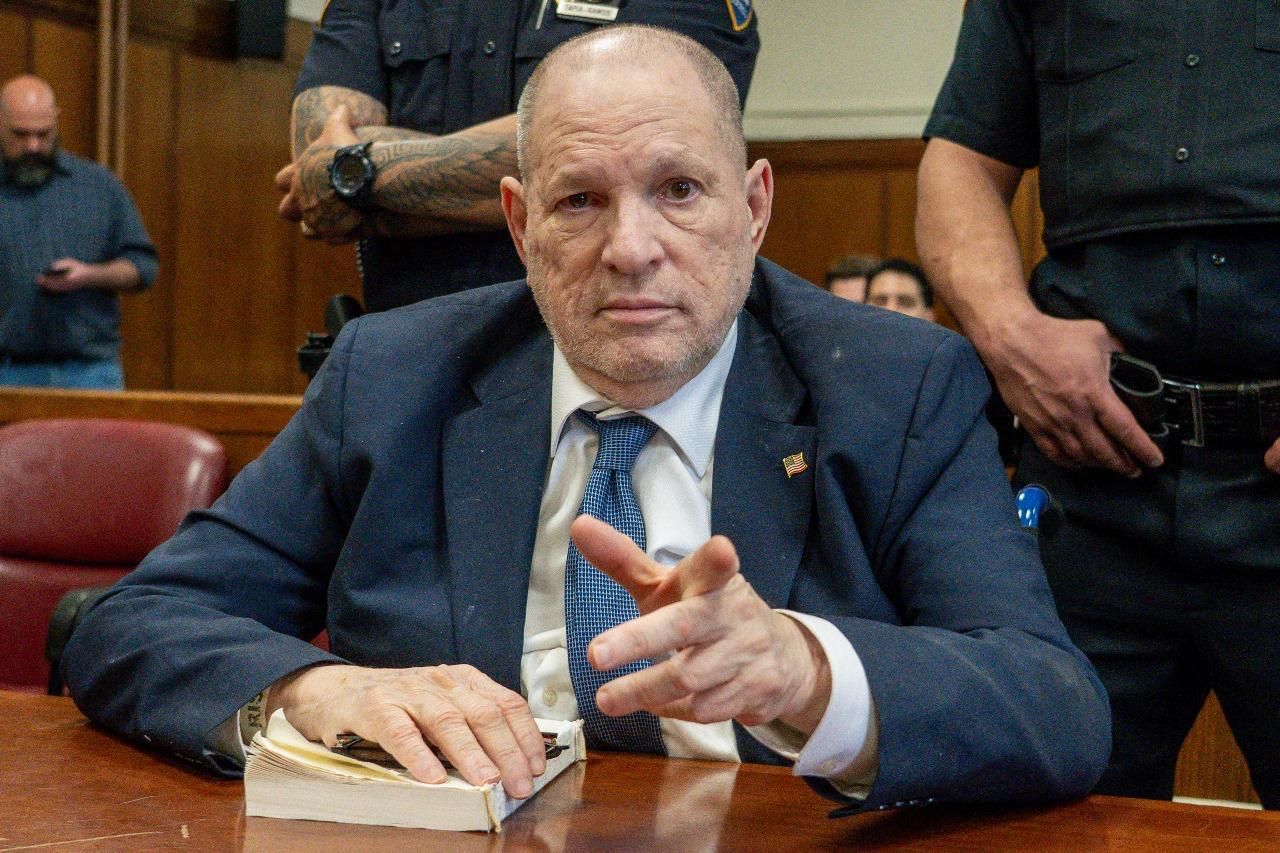
The Harvey Weinstein case, which made headlines in 2017 and triggered the global #MeToo movement, is once again front and center in New York this Tuesday. The former Hollywood mogul is back on trial for sexual assault and rape, in a new legal chapter expected to last six weeks. This comes after the dramatic reversal of his initial conviction last year.
Women around the world have their eyes on New York, where, shortly after 9:30 a.m. local time, the retrial of the disgraced Hollywood producer officially began. Five years after his initial conviction—which was overturned in April 2024 by the New York Court of Appeals—Weinstein is once again facing justice.
The decision to vacate his previous conviction was widely seen as a blow to survivors and a setback for the justice system’s ability to take victims’ testimonies seriously.
Wearing a dark blue suit and tie, the 73-year-old former Miramax executive, visibly weakened by health problems, entered the Manhattan criminal court pushed in a wheelchair.
The trial opened with jury selection, which could take several days before testimony begins from witnesses for both the prosecution and the defense.
Why is there a new trial?
Weinstein is being retried on new charges related to the alleged sexual assault of former production assistant Mimi Haleyi in 2006 and the rape of actress Jessica Mann in 2013.
Currently held at Rikers Island, Weinstein was also sentenced in California in 2023 to 16 years in a separate case involving rape and sexual assault.
The 2020 New York conviction—where he was sentenced to 23 years in prison—was overturned due to procedural errors. The appellate judges ruled, by a narrow 4–3 vote, that he had not received a fair trial. The court cited the inclusion of testimony from women who accused him of misconduct for which he had not been charged, deeming it prejudicial.
This retrial also includes a new charge related to an alleged 2006 sexual assault in a Manhattan hotel involving an anonymous accuser.
“These women will make sure Weinstein is held accountable for the horrific crimes he committed,” said Lindsay Goldbrum, attorney for one of the alleged victims, outside the Manhattan courtroom. “The fact that they are testifying again shows their courage,” she added.
All three accusers are expected to take the stand in a trial scheduled to last up to six weeks.
Defense attorney hopes for a ‘fresh look’
Meanwhile, Harvey Weinstein continues to maintain his innocence and hopes the case will be looked at “with fresh eyes,” more than seven years after investigations by The New York Times and The New Yorker ignited a global reckoning and launched the #MeToo movement.
Just hours before the retrial began, his lawyer Arthur Aidala expressed confidence, saying this time would be “very different,” and promising to focus “on the facts, not on #MeToo.”
“Five years ago, during his first trial, there were protests and chants calling him a rapist. People were so against him,” Aidala said. “I think all that has calmed down.”
In recent court appearances, Weinstein—once a defining force in independent cinema from the 1990s to the 2010s (Sex, Lies and Videotape, Pulp Fiction, Shakespeare in Love)—appeared pale, bald, frail, and confined to a wheelchair.
Described by his accusers as a predator who used his industry power to coerce sexual favors from actresses and assistants—often in hotel rooms—Weinstein has always insisted that all encounters were consensual.
Miramax, the studio he co-founded with his brother Bob and later sold to Disney, produced films that earned numerous Oscars. Since the 2017 exposés by The New York Times and The New Yorker, over 80 women—including Angelina Jolie, Gwyneth Paltrow, and Ashley Judd—have accused Weinstein of harassment, assault, or rape.
The #MeToo ripple effect
When the Weinstein scandal broke in 2017, it quickly sparked a global wave of women speaking out against harassment, sexual assault, and abuse—what became known as the #MeToo movement.
It spread across continents and industries, including in France, where the entertainment world was forced to face its own reckoning following allegations by actress Judith Godrèche against filmmakers Benoît Jacquot and Jacques Doillon.
Most recently, a French parliamentary report released on April 9 painted a damning picture of “systemic” and “endemic” violence within the country’s cultural sector.
With AFP



Comments